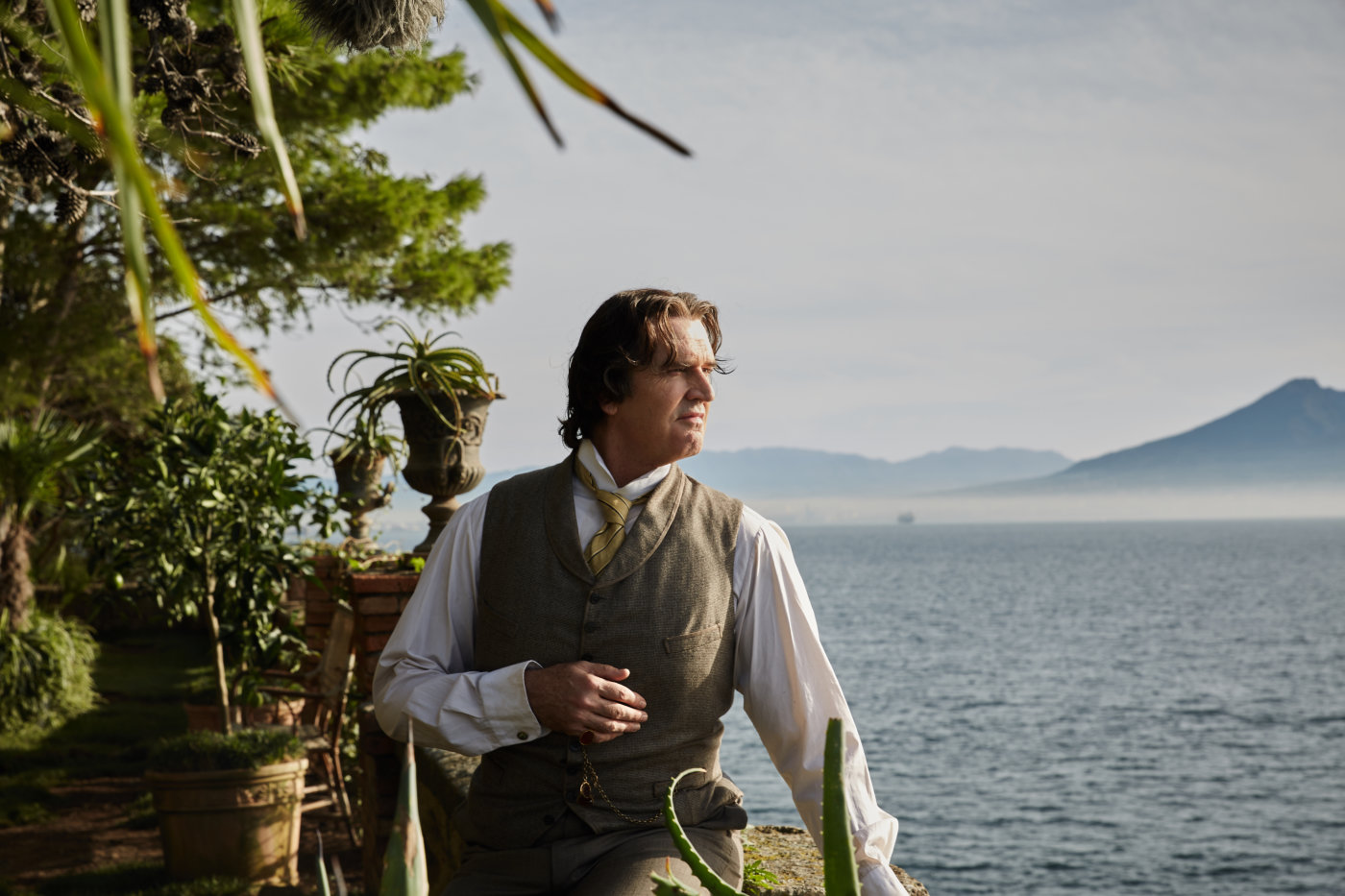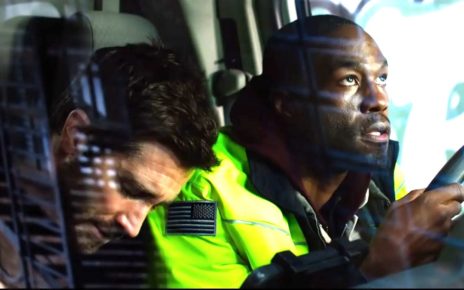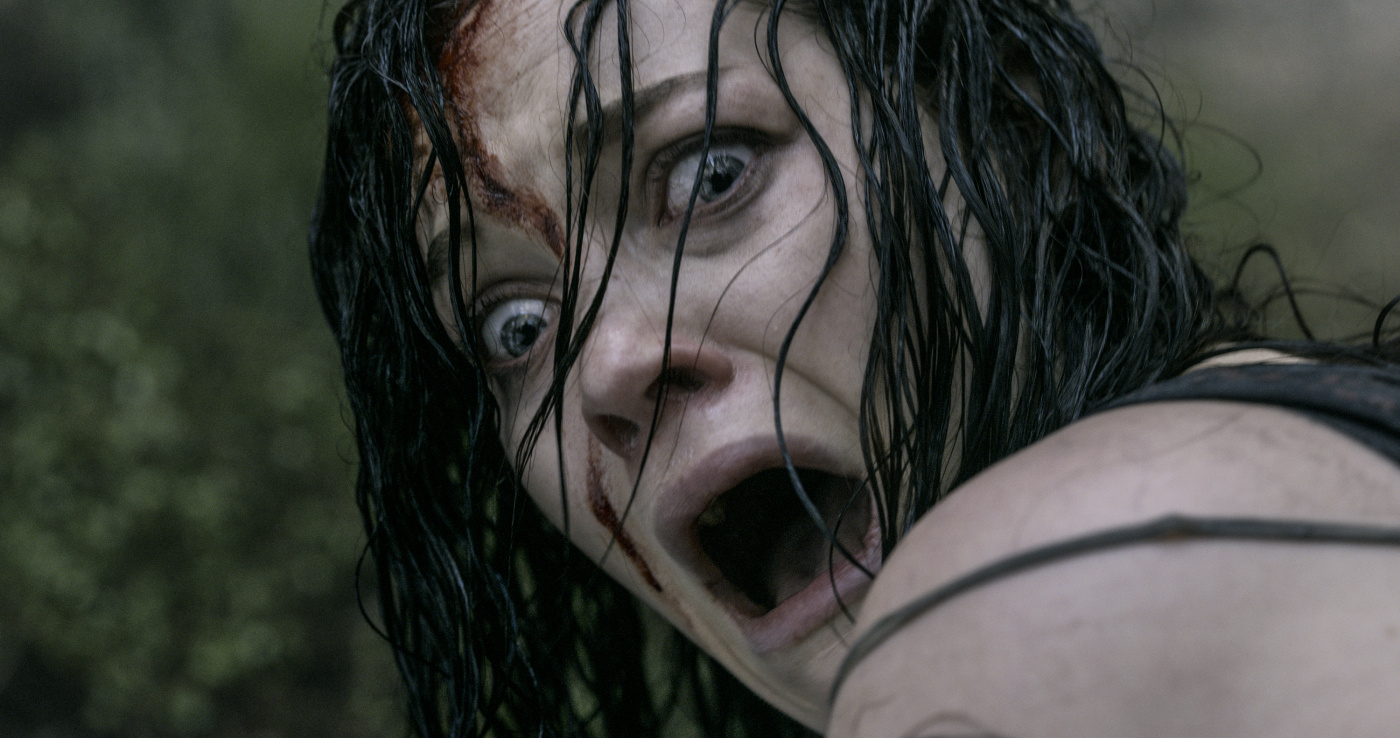Oscar Wilde gambled wrong … and was never really the same again. In 1895, Wilde sued the Marquess of Queensbury for criminal libel. When the trial revealed Oscar was Wilde for men, he was sent to prison for two years of hard labor. Before prison, he was a celebrated poet laureate and author. The Importance of Being Earnest played on London stages. After prison, he had no country, no wife, no children, no money, and no inspiration. Volume-wise, his post-incarceration publishing would match about a week of SteelFrogBlog.
So, naturally, this biography takes place entirely after incarceration. Of course it does; why would we want to see the happy, productive, celebrated Oscar Wilde, when instead the sickly, discouraged, and self-pitying one was available? Wikipedia tells me he died in 1900 of meningitis. So that’s what it was! These movies. I swear sometimes. Seriously, some films, like this one, just give hints and symptoms and we’re supposed to guess what they’re dying of. What am I, a doctor? Is this one of those movie things I’m just supposed to know – like every time a woman turns down alcohol, she’s pregnant? So every time a dude coughs blood, that’s what? TB? And every time there’s bleeding from the ear that’s cerebral meningitis? And every time a grown man can’t pronounce simple words, that’s Sylvester Stallone.
The movie was wise to show up front the horror to come. It opens in the last week of Wilde’s life in which the man looks as if he’s constantly wearing a grotesque Halloween costume. While the look is horrible, it allows us to imagine the healthy version of Oscar with joy instead of saying, “Good Lord! What happened to Rupert Everett?! He used to be one of the most handsome men alive.” After viewing such, I can but conclude that writer/director Everett has been living exclusively in a cave for years being exposed to naught but endless supplies of box wine, shrimp cocktails, and Reese’s Pieces.
Perhaps I go too far, sir. I can but conclude that The Happy Prince had an expert make-up artist who was, unfortunately, on speed during the entire shoot.
You might be wondering at the title. Yeah, I was too. In Paris, where Oscar spent his last days in exile, Wilde befriended two French boys. The elder he paid for sex and the younger he told stories. It is worth note that while Rupert Everett is currently 59, the real Oscar Wilde died at 46. This doesn’t make me any happier about the arrangement. I wonder if while filming, Rupert figured well, hey, gosh, we all accepted an adult buggering a teen in Call Me by Your Name, didn’t we? I guess “we” did; I wasn’t Wilde about that, either. Anyway, The Happy Prince is the title figure in the dreadful tale Oscar relates periodically during death week to the younger boy. The fact that these French Dickensian chimney sweeps find Wilde’s company palatable is truly an imagination of the camera.
accepted an adult buggering a teen in Call Me by Your Name, didn’t we? I guess “we” did; I wasn’t Wilde about that, either. Anyway, The Happy Prince is the title figure in the dreadful tale Oscar relates periodically during death week to the younger boy. The fact that these French Dickensian chimney sweeps find Wilde’s company palatable is truly an imagination of the camera.
As usual, I find myself far more attracted to the works authored by Oscar Wilde than the tales of Oscar Wilde. While I adore Wilde’s fiction, I can’t say I was taken with the man himself even before he had to sponge life off the charity of others. After prison and without an Ezra Pound to his name, Wilde still abuses the generosity of his ex-wife Constance (Emily Watson) and his would-be companion, Robbie Ross (Edwin Thomas), all to chase the dreamy Lord Alfred (Colin Morgan). Is the message here that those who have added richly to our collective human achievement meter deserve to live better? Maybe. Yeah, jailing him for sodomy was a dick move and dragging his name through the mud afterwards? Also a dick move. Yes, Oscar Wilde deserved a bit better and his death was an ugly tragedy compared to his pre-jail love of life. But it wasn’t like the guy was a saint. Next time, remind me to download a copy of Dorian Gray.
♪Wilde fling, it was your downswing
You made everything gloomy
Wilde fling, I think you blew it
But I wanna know what for
Come on and drop the charges
You blew it♫
Rated R, 105 Minutes
Director: Rupert Everett
Writer: Rupert Everett
Genre: History’s minor regrets
Type of being most likely to enjoy this film: Oscar Wilde
Type of being least likely to enjoy this film: Bigots
♪ Parody Inspired by “Wild Thing”



